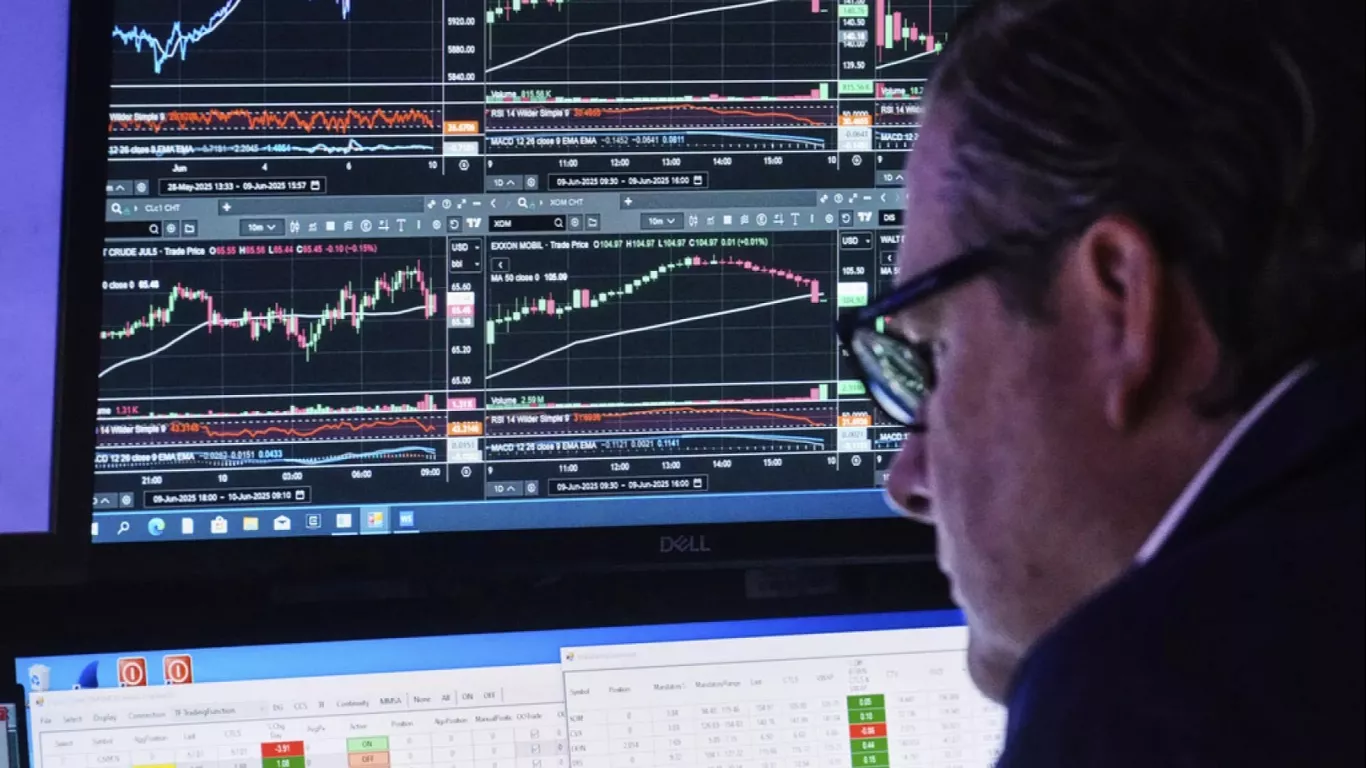European markets started Tuesday under pressure, with investor sentiment dampened by surging oil prices and escalating geopolitical tensions in the Middle East. Crude prices jumped over a dollar per barrel after Israel issued an evacuation alert for hundreds of thousands of residents in Tehran, raising fears of a broader regional conflict.
The warning coincided with US President Donald Trump cutting short his participation in the G7 summit in Canada to address the crisis. Before his departure, Trump finalized a trade agreement with the United Kingdom, reducing tariffs on key exports including vehicles and agricultural goods. However, this development failed to lift market sentiment across Europe.
By midday, London’s FTSE 100 had fallen nearly 0.5%. Germany’s DAX dropped by 1.3%, and France’s CAC 40 slipped by 1%. Spain’s IBEX 35 led the losses, down 1.5%.
Broad-based declines characterized the UK market, with only a handful of stocks in positive territory. Energy giants BP and Shell managed modest gains thanks to the strength in oil prices. In Germany, defence contractor Rheinmetall was the sharpest decliner, as investors appeared to be cashing in after a period of strong performance. Analysts warned that similar profit-taking could soon hit other top performers amid growing uncertainty.
US markets also showed signs of a weaker start. Futures tied to the S&P 500 and Dow Jones Industrial Average were both down by around 0.6%.
In Asia, the picture was mixed. Japan’s Nikkei 225 rose 0.6% following the central bank’s decision to keep interest rates at 0.5%. The Bank of Japan signaled that while inflation pressures remain, domestic demand was softening, particularly in consumer spending and housing.
Other major indices in the region saw marginal movement. The Hang Seng in Hong Kong fell 0.7%, while the Shanghai Composite was almost flat. South Korea’s Kospi edged up 0.1%, Taiwan’s Taiex climbed 0.7%, and Australia’s ASX 500 dipped slightly. Thailand’s SET index hovered near the flat line.
Oil remained a central focus for traders. Concerns are mounting that ongoing military exchanges between Israel and Iran could disrupt the flow of crude from the region. While past supply fears often led to short-term spikes, markets are watching closely for signs of lasting damage.
US benchmark crude rose by 87 cents to $72.64 a barrel, and Brent crude, the global standard, was up the same amount to reach $74.10.
Meanwhile, gold, which rallied last week on safe-haven demand, slipped over 0.3% on Tuesday to $3,405 per ounce.
Currency markets remained relatively calm. The euro held steady at around 1.1565 against the dollar. The British pound weakened slightly to 1.3555, while the yen, which initially gained ground, later reversed, with the dollar trading at ¥144.75.
Looking ahead, investors remain focused on key economic decisions. The US Federal Reserve is scheduled to meet Wednesday, with most economists expecting no change in interest rates. Market participants will be watching closely for any updated forecasts, especially in light of trade tensions and global inflation trends.
With geopolitical risks intensifying and central bank decisions looming, the rest of the week is likely to remain volatile for global markets.


